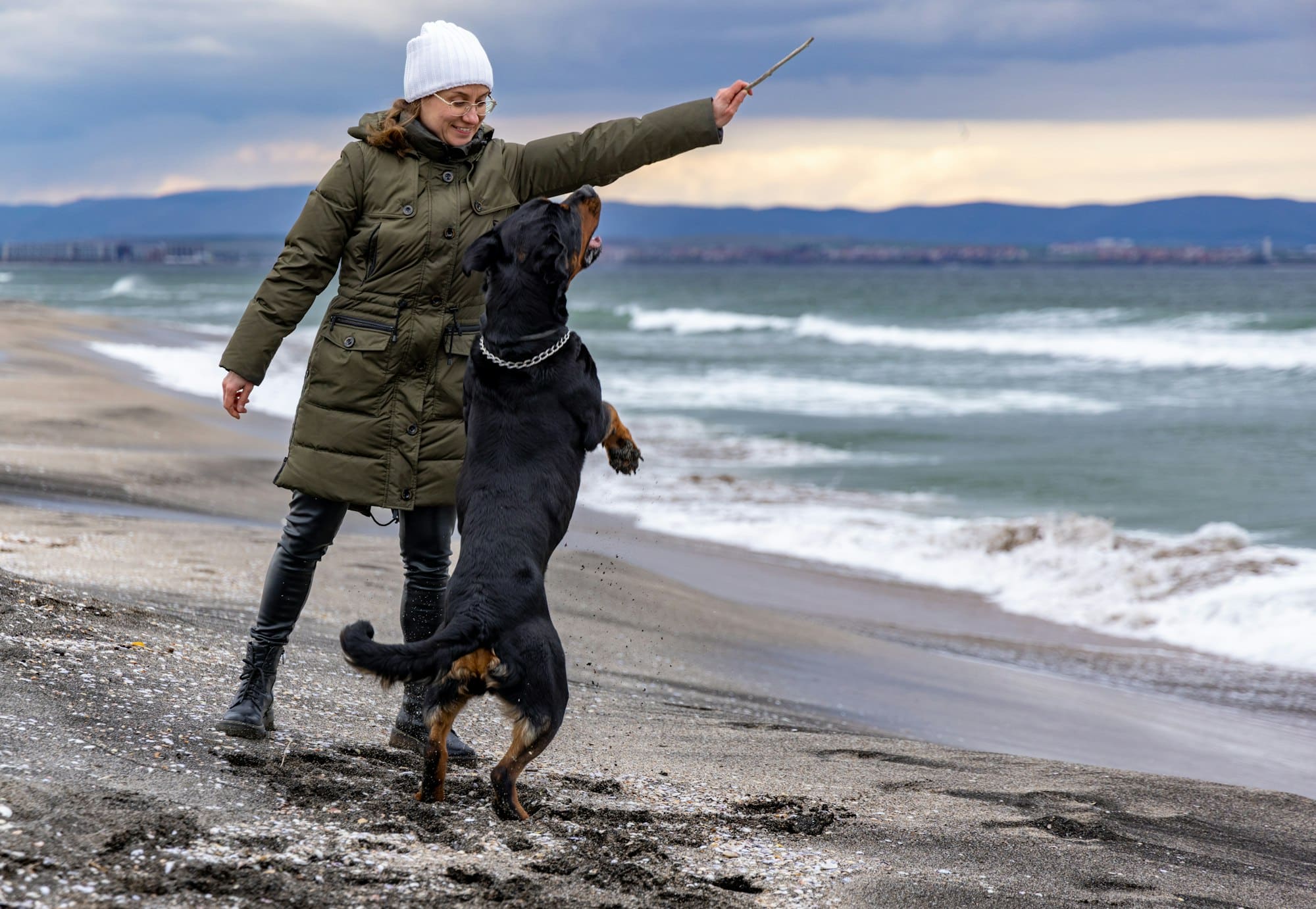How to Choose the Best Breed-Specific Nutrition Plan for a Rottweiler?

When you have a Rottweiler, you realize it’s not just a dog, it’s a family member. And when it comes to family, there’s nothing more important than health. The cornerstone of good health lies in the food we consume, and the same rings true for our four-legged friends. When it comes to nutrition, not all dog breeds have the same needs. A Rottweiler, for example, is a large breed with unique dietary requirements. This article aims to shed light on how to choose the best breed-specific nutrition plan for your Rottweiler.
Understanding the Dietary Needs of Your Rottweiler
Before we dive into the specifics of a Rottweiler’s diet, it’s essential to understand their unique dietary needs. Rottweilers are large and robust, known for their muscular physique. This makes them high-energy dogs requiring a diet rich in protein. Protein is not just about muscles; it’s the building block for cells, tissues, organs, enzymes, hormones, and antibodies.
Also to see : How to Manage and Reduce Separation Anxiety in a Clingy French Bulldog?
For a Rottweiler puppy, protein is even more important. Their diet should be high in protein to support their rapid growth and development. But it’s not just about protein. Rottweilers also require a balanced mix of fats, carbohydrates, vitamins, minerals, and water to maintain their health.
Identifying High-Quality Ingredients for Rottweiler Diet
It’s tempting to simply opt for the dog food that promises the highest protein content. However, the quality of ingredients is as crucial as the quantity. Not all proteins are created equal. Look for foods that list real meat, like chicken, beef, or fish, as the primary ingredient. Avoid foods that use meat by-products or fillers as their main protein source.
In parallel : What’s the Best Way to Introduce a Diabetic Dog to a Regular Exercise Regimen?
In addition to protein, Rottweilers need a good balance of fruits and vegetables for essential vitamins and minerals. Look for food with ingredients like sweet potatoes, peas, and carrots. These provide the necessary fiber for a healthy digestive system. Additionally, omega-3 and omega-6 fatty acids are great for your Rottweiler’s skin and coat.
Choosing Between Dry, Wet, and Raw Foods
Dog food comes in various forms: dry kibble, wet food, and raw food. Each has its merits and drawbacks, but ultimately, the best choice depends on your Rottweiler’s specific needs and your lifestyle.
Dry food is a popular choice because it’s easy to store and serve. Quality dry food can deliver a balanced diet for your Rottweiler, and the texture helps keep their teeth clean. However, it’s essential to avoid dry food with artificial preservatives, colors, or flavors.
Wet food is more appealing to some dogs due to the smell and texture. It also helps keep your dog hydrated. However, it’s usually more expensive and doesn’t have the dental benefits of dry food.
Raw food diets are becoming increasingly popular. Advocates argue that they’re closer to a dog’s natural diet. Raw food diets can be balanced and healthy if carefully planned and prepared. However, they require more effort and carry potential risks if not properly handled.
Considering Your Rottweiler’s Age and Lifestyle
Your Rottweiler’s age and lifestyle also play a big role in their nutritional needs. Puppies require more calories per pound than adult dogs as they’re growing and developing. Similarly, an active working Rottweiler will need more calories than a sedentary senior dog.
It’s important to monitor your Rottweiler’s weight and adjust their diet accordingly. Obesity can lead to serious health issues in Rottweilers, such as hip dysplasia and heart disease. Ensuring your Rottweiler gets the right amount of exercise is also crucial for their overall health.
Understanding the Myths and Facts about Rottweiler Diet
As with any topic, there are myths and facts surrounding the Rottweiler diet. One such myth is that Rottweilers should only eat raw meat. While Rottweilers do require a high-protein diet, an all-meat diet can lead to nutritional deficiencies.
Another common myth is that Rottweilers should avoid grains. While some dogs may have a grain allergy, most do not. Whole grains can provide valuable nutrients and fiber to your Rottweiler’s diet.
Remember, every Rottweiler is unique. What works for one may not work for another. It’s always best to consult your veterinarian or a canine nutrition expert when designing a diet plan for your Rottweiler.
Analyzing the Best Brands of Dog Food for Rottweilers
Now that we understand the nutritional needs of Rottweilers, let’s turn our attention to some of the best dog food brands that cater to the needs of this large breed. Your top priority should be to check the quality of the ingredients before you check the price. Make sure the dog foods showcase real meat as the top ingredient and do not contain artificial preservatives, colors, or flavors.
Royal Canin is a brand that offers breed-specific formulas, and their Rottweiler-specific diet is a popular choice. This dry dog food includes high-quality proteins and fatty acids to promote muscular development and a healthy coat. It also contains a specialized blend of antioxidants, vitamins, and minerals to support the Rottweiler’s immune system.
Blue Buffalo is another reputable brand known for its high-quality ingredients. Their large breed formula is rich in deboned chicken, whole grains, fruits, and vegetables, providing a balanced diet for your Rottweiler. It is also grain-free, which is an excellent option if your Rottweiler has a grain sensitivity.
When choosing the best dog food for your Rottweiler, always remember that a higher price does not always guarantee a better product. It is the composition of the food, the balance of nutrients, and the quality of ingredients that are essential. You can check prices on Amazon or any other trusted pet food retailer, but make sure to read the ingredient list and customer reviews to make an informed decision.
Tailoring a Nutrition Plan for Rottweiler Puppies
If you’ve just welcomed a Rottweiler puppy into your home, it’s crucial to understand that their nutritional needs differ from those of an adult Rottweiler. Rottweiler puppies grow fast, and a diet high in protein is essential to support their rapid development.
Specifically designed puppy food is usually the safest choice as they are formulated to cater to a puppy’s high energy and development needs. Companies like Royal Canin and Blue Buffalo offer breed-specific puppy food for Rottweilers, enriched with high protein and necessary vitamins and minerals.
Rottweiler puppies have smaller mouths and stomachs, so feed them smaller, more frequent meals. This is also an excellent time to establish a feeding routine, which can help with house training. Always provide fresh water and avoid feeding your Rottweiler puppy an all-meat diet or raw food diet unless directed by a veterinarian or a canine nutrition expert.
In conclusion, choosing a breed-specific nutrition plan for your Rottweiler is a fundamental part of ensuring their overall health and well-being. Understanding your Rottweiler’s unique dietary needs, identifying high-quality foods, considering their age and lifestyle, and separating diet myths from facts are all crucial steps in this process. Remember that every Rottweiler is unique; what works for one may not work for another. Always consult your vet or a canine nutrition expert to design the best diet plan for your Rottweiler.
